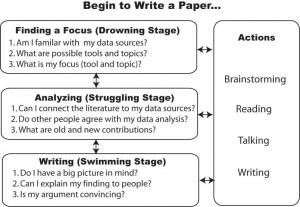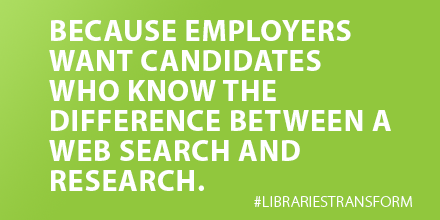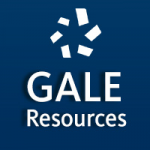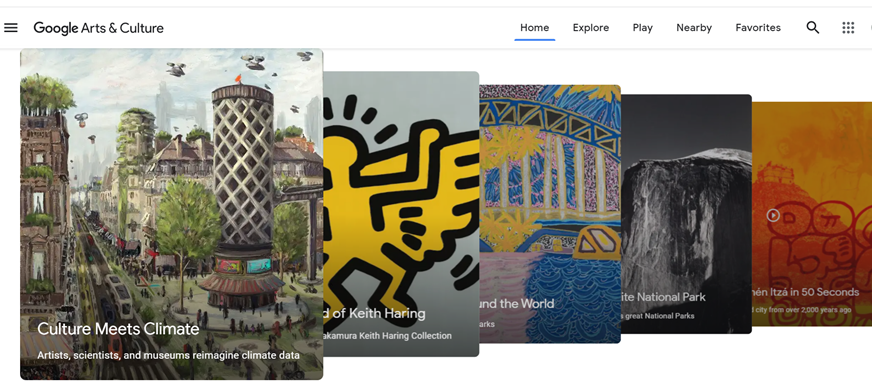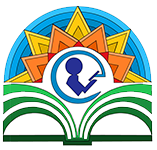O.K. I’m ready to start researching!! Now what?
It’s called the research PROCESS for a reason! Research takes time and perseverance. Knowing the right tools and learning the necessary skills will make your research process more effective and efficient.
Below you will find information on:
- Smart Search Skills
- Google Search Boolean Operators/Search Hacks
- Electronic Resources & Databases
- Evaluating Information Online
- Ethical uses of AI
- Citation resources
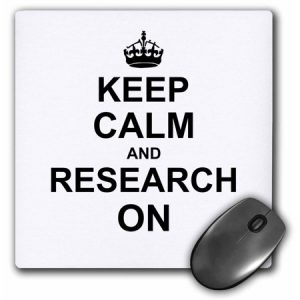
Database Quick Links
Here are quick links to our school databases. If you are asked for a password to access it, remember the password trick I showed you, or message Ms. Walsh, the Media Specialist, on Schoology. Even if you’re not at school – we have you covered! Check out the video below for a quick intro on how to access and navigate through the Gale databases.
Gale Databases include: Opposing Viewpoints, Academic OneFile (peer-reviewed scholarly articles), General OneFile (news, magazine, journal articles), Gale E-Books/ Reference, Middle School Database)
Password when using from home: researcher
JSTOR is an in-depth, research database and digital library of academic journals, books, and primary sources. See Ms. Walsh for the password and log-in instructions.
Username: yellowjackets
Password: research101
Smart Searching
Search engines such as Google can be a great starting place for research, however they do not always deliver the most reliable results. YOU, as the researcher, must have the skills to search smart and know when to move on to more reliable, efficient resources. If you need to get your research done, sifting through thousands of links is not effective. Practice these smart search techniques in all your research to get the best results.
Boolean Logic & Smart Search Skills

- Every word matters (searching for “the Who” vs. “a who” vs. “WHO”)
- Every letter matters (search for Eagles vs. Eagle)
- Word order matters (blue sky vs. sky blue)
- Capitalization does NOT matter
- Group together key phrases or names with quotations marks (“edgar allen poe” “tell tale heart”)
- Choose your keywords effectively! And use as many as possible and then narrow down.
- Evaluate your source: read it, check for bias! Use the 5ws-of-website-evaluation
Search Hacks on Google!
***Click here for the best Google search hacks that we talked about in your lesson: 5 Must-Have Google Search Tips for Students | Common Sense Education
Use site: to search a website. For example, to get all mentions or articles on light pollution on a website, type: site: washingtonpost.com “light pollution”
Also use site: to narrow down your results to only reliable domains like .edu or .gov. For example, site:.edu single payer healthcare
Searching for articles from foreign countries? use site: and the country domain code. For example, site:.de “syrian refugees”
Narrow down a Google search by date: Click on “Tools” in the Google toolbar under the search bar. Then click on “Any time” to limit articles by date.
In a Google search, use the (–) minus symbol, instead of the word NOT. Try it, type in a search: jaguar speed. Next limit it by adding : -car.
Want synonyms for a word? Type a tilde ~ before the word.
Search related websites by typing related: in front of website address, for example: related:time.com
Searching social media:
Search hashtags by typing # in front of your search term, TRY IT: #jacketsfootball
Search a social media site by using @ in front of the website, TRY IT: @instagram sahsjackets
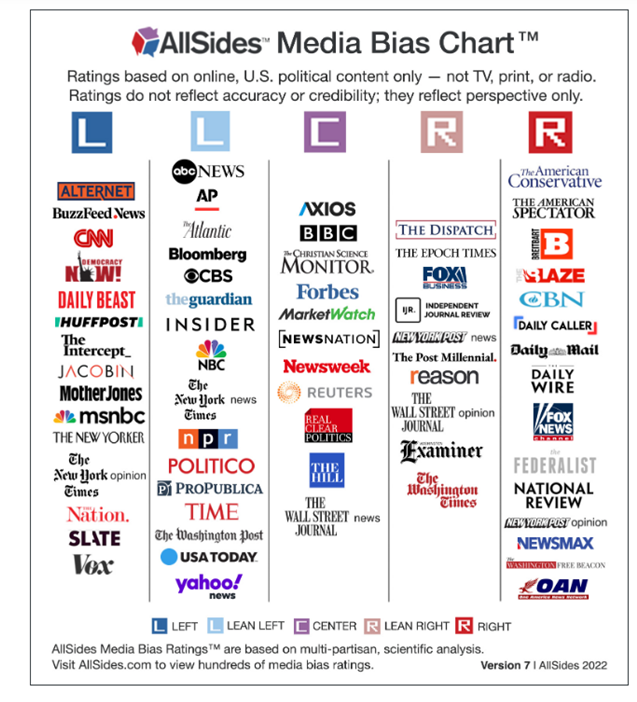
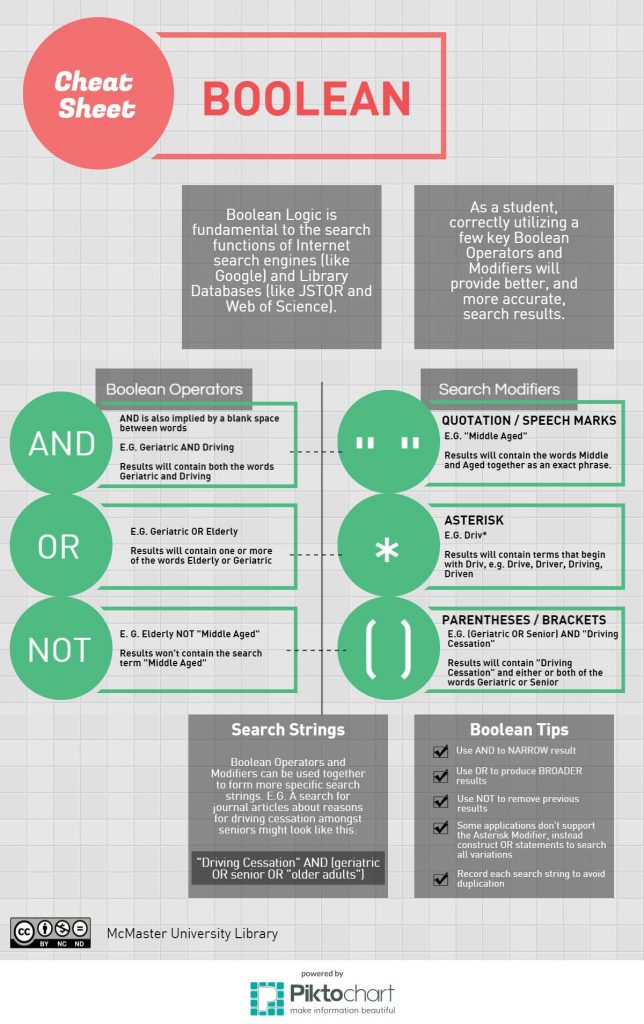
Media Literacy & Evaluating Online Information
Not all websites are created equally! Part of the research process is knowing how to evaluate any websites or sources you use (this includes photos!) Learn to READ LATERALLY!
Lateral reading is INVESTIGATING & FACT CHECKING: you are basically searching for information about a source while you are reading it. As you are reading a website or source, you should use the SIFT method to evaluate information. Check out the guide below from the University of Oregon.
Let’s put this method to the test!
Choose a website from below to evaluate using the SIFT method:
Dihydrogen Monoxide Research Division
The Pacific Northwest Tree Octopus
Don’t forget some great fact-checking tools you have access to:
More resources for evaluation:
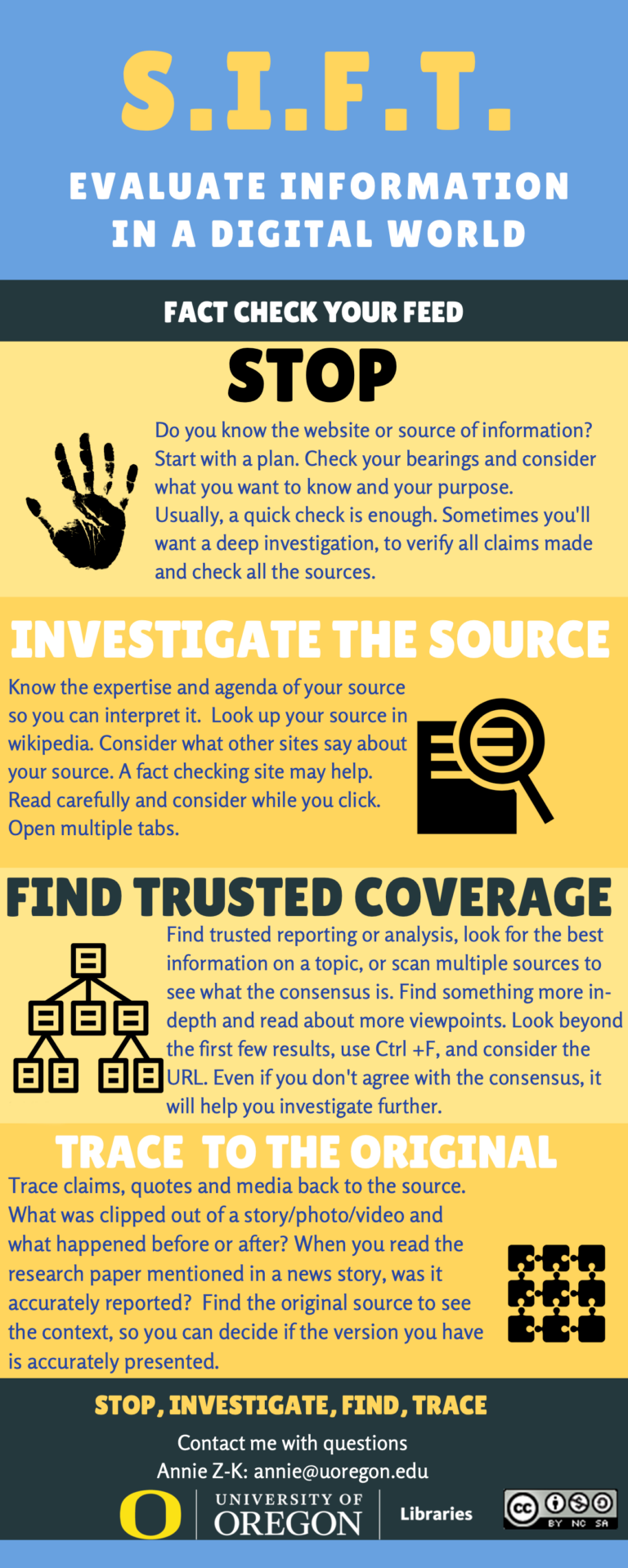
Credible Websites: a Good Place to Start Your Research
GOOGLE SCHOLAR: Instead of “Google”, Google Scholar provides a simple way to broadly search for scholarly literature. From one place, you can search across many disciplines and sources: articles, theses, books, abstracts and court opinions, from academic publishers, professional societies, online repositories, universities and other web sites. REMEMBER – many of these articles will be behind a paywall or NOT full-text. Our school research databases provide scholarly articles FREE for you.
ProCon.org: a website run by Britannica (the encyclopedia people!) dedicated to providing non-biased, straightforward information on debatable issues.
Room for Debate: NY Times opinion pieces are a perfect place to start gathering ideas for a research topic. Debatable topics offer a lot of substance!
The Miller Center: is a nonpartisan affiliate of the University of Virginia that specializes in presidential scholarship, public policy, and political history, providing critical insights for the nation’s governance challenges.
News sources:
Make sure to always pull news articles from the research databases also!
AllSides: Presents balanced, straightforward news articles from diverse perspectives and all sides.
The Big Project: Worldwide News in English: An extremely valuable resource that links to newspapers worldwide that publish editions in English. Coverage by region includes the UK, Europe, the Americas, Australia, New Zealand, the Pacific, Africa, Asia, and the Middle East.
World News Tonight: Prefer a visual? Watch the nightly news focusing on global issues.
History Resources:
Britain and its Empire LibGuide
Colonial and Post-Colonial Africa LibGuide
Colonial African History Research resources
Google Arts & Culture: Explore topics in the arts and curated websites organized into collections such as: artists, mediums, movements, historical events and figures, time, color, themes, museums, and popular topics. View thousands of pieces of artwork from hundreds of museums worldwide. Download the app to have access to virtual reality tours of museums.
Search Primary Resources at the Getty Research Portal and the Getty Research Institute – an online search platform providing global access to digitized art history text in the public domain. A multilingual and multicultural source. It takes time to research through this website.
Europeana: provides access to over 50 million digitized items (books, music, artwork, and more) from thousands of European archives, libraries, and museums. This is a great place to begin research and to investigate further into sources.
Smithsonian Art resources: a curated collection of resources and websites by the Smithsonian Libraries and Archives. Check out the research guides and make sure to click on individual museum links to view collection and additional detailed lists of reputable online sources.
The Art Story: art movements, artists, & ideas. Check out the timeline feature also!
Art 21: Engaging resources on contemporary art and artists, current events and films.
Internet Broadway Database: the official database for Broadway theatre information. The IBDB provides records of production from the beginnings of New York theatre to present day.
SCIENCE RESOURCES:
Smithsonian Natural History Resources
Electronic Databases
Why use a database? Googling is sooooooooo much easier!
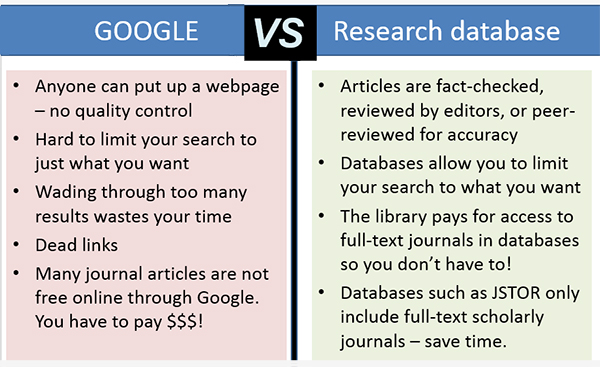
We have several Gale Databases available! Click on either icon below for excellent sources available to ALL our students. You may access these databases at school AND at home – 24/7! See Ms. Walsh for the password to access from home!
USING GALE DATABASES:
- Try out Topic Finder! This interactive search function presents a visual of keywords, subjects, and related articles to narrow or broaden your search.
- Use filters, Boolean logic, and limiters to narrow down your search (by year, by publications, by documents type)
- Gale Features: Audio (listen to article), Translation, Text size adjuster, Download/Print/Email/Save articles, Highlighter, Citation features. Access images, videos, and infographics.
- SAVE your articles to OneDrive! It’s easy and useful!
- Cite your work – totally easy – it’s already done for you in Gale articles. Copy and paste the citation featured at the end of each article.
- What is “peer reviewed”?
Peer-reviewed articles, also known as scholarly or refereed articles, are written by experts in the field, reviewed by the scholar’s peers to determine whether they are high-quality pieces of work, usually include in-text citations and a bibliography of cited sources, and are published by a professional organization or society, university, research center, or scholarly press
We have also purchased a subscription to JSTOR, an in-depth research database. Please see Ms. Walsh for the username and password – or – remember the trick I showed you!
AI and Research
AI, generative learning, and LLMs are a part of our digital and learning lives. Learn how to leverage these tools in ETHICAL and RESPONSIBLE ways to advance your research and education. Remember: the policies and rules set forth by your teacher and school will always take priority when it comes to AI use. Also remember, that AI has limitations and failures. When in doubt, use your human brain. Teachers know genuine work when they see it!
Ethical uses of AI programs in school:
- help you understand a concept
- generate ideas
- support your research
- help with outlining or proofreading a paper
- design a graphic for a project.
Try out AI search engine Perplexity . This AI search engine delivers reliable, real-time results where every answer is backed by legitimate/reliable website links, citations from trusted news outlets, academic papers, and established blogs.
The safest AI program at SJCSD is Microsoft Co-Pilot.
Never share any personal information with AI programs!
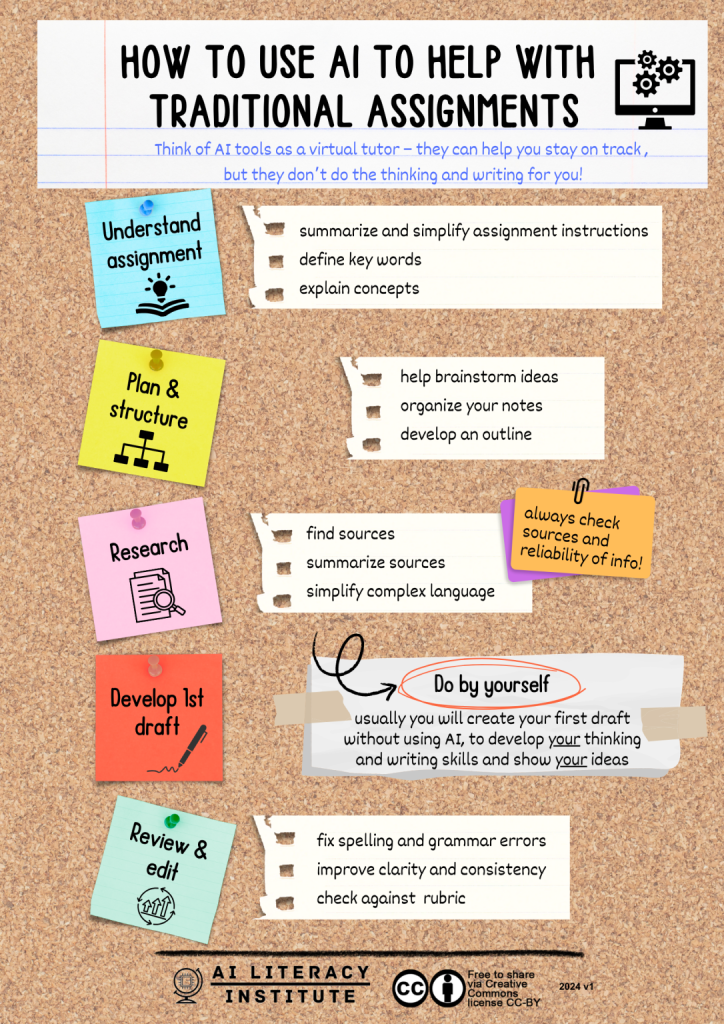
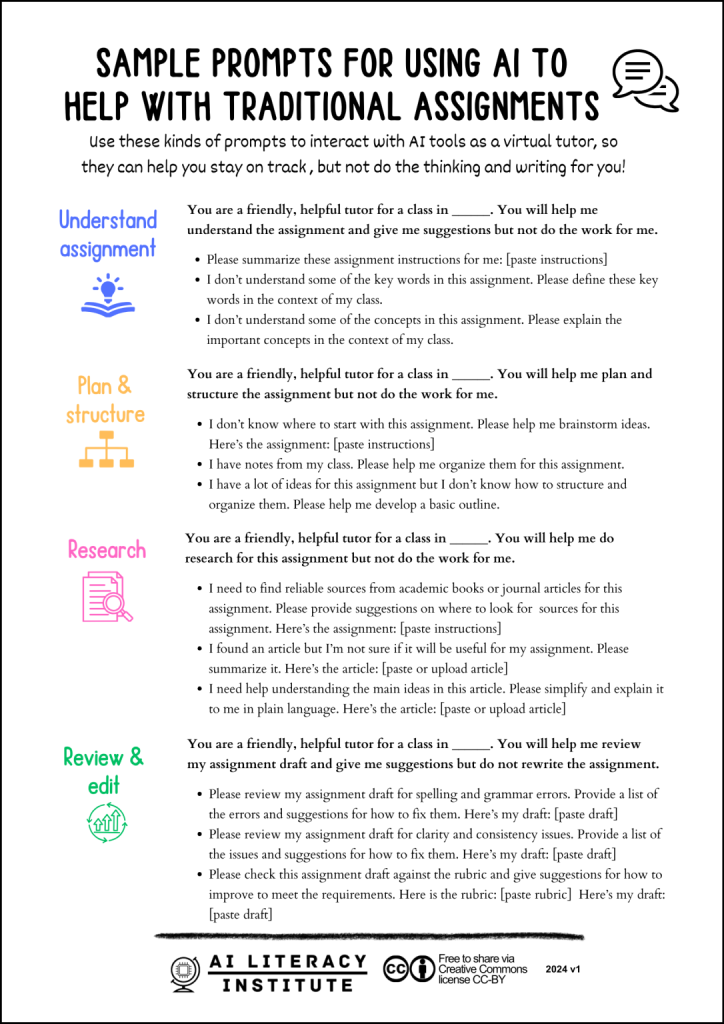
Don’t Plagiarize! Cite your sources:
The OWL Citation guide (the best site for citation references and guides!)
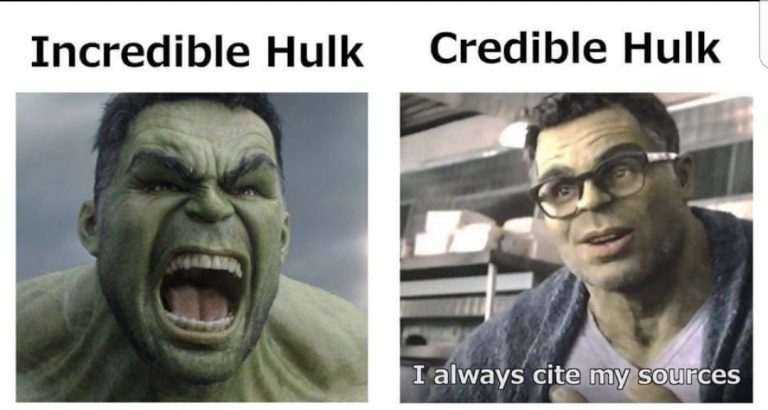
Happy researching!
Please remember, we are always here to help guide and support you in the research process. Come visit library staff anytime during school hours, or send an email or Schoology message to Ms. Walsh.
Our ultimate goal is for you to be an INDEPENDENT and AMAZING RESEARCHER!
